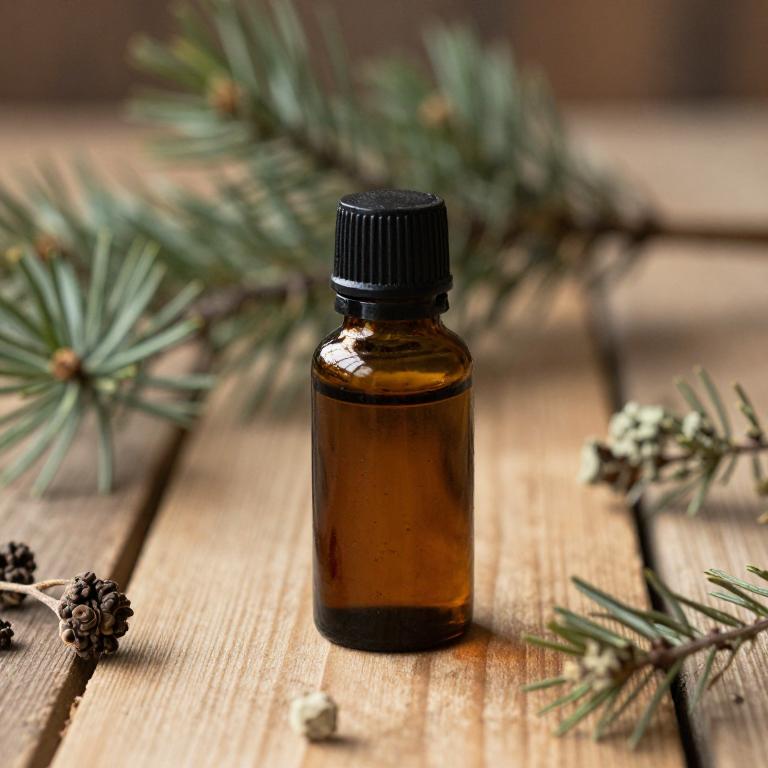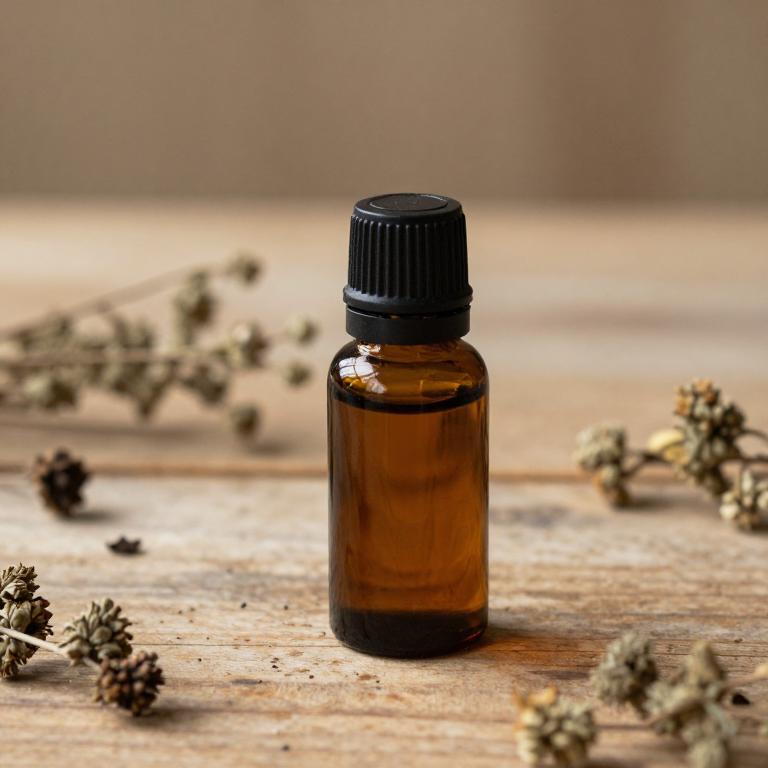10 Best Herbal Essential Oils For Lost Voice

Herbal essential oils such as eucalyptus, peppermint, and thyme are often used to support vocal health and alleviate symptoms of a lost voice.
These oils possess anti-inflammatory and decongestant properties that can help reduce throat irritation and clear nasal passages, making them beneficial for individuals experiencing hoarseness or soreness. When diluted properly with a carrier oil, they can be applied topically to the neck or inhaled through steam to soothe the respiratory system. However, it's important to consult with a healthcare professional before using essential oils, especially if there are underlying health conditions or allergies.
While they may offer temporary relief, they should not replace medical treatment for persistent or severe vocal loss.
Table of Contents
- 1. Eucalyptus (Eucalyptus globulus)
- 2. Thyme (Thymus vulgaris)
- 3. Rosemary (Rosmarinus officinalis)
- 4. Ginger (Zingiber officinale)
- 5. Peppermint (Mentha piperita)
- 6. Scots pine (Pinus sylvestris)
- 7. Fennel (Foeniculum vulgare)
- 8. Citrus sinensis
- 9. Ceylon cinnamon (Cinnamomum zeylanicum)
- 10. English lavender (Lavandula angustifolia)
1. Eucalyptus (Eucalyptus globulus)

Eucalyptus globulus, commonly known as blue gum eucalyptus, is a popular source of essential oil widely used for its therapeutic properties.
This essential oil is known for its strong, camphor-like aroma and its ability to support respiratory health, making it a common choice for those experiencing a lost voice due to throat irritation or inflammation. When used in steam inhalation or as a gargle, eucalyptus globulus essential oil can help reduce mucus buildup and soothe throat discomfort. However, it should always be diluted with a carrier oil before use to prevent skin irritation.
While it may provide relief for a sore throat, it is not a cure for underlying conditions causing voice loss and should be used as part of a broader treatment plan.
2. Thyme (Thymus vulgaris)

Thymus vulgaris, commonly known as thyme, is a versatile herb that has been traditionally used for its potent essential oils, which are rich in compounds like thymol and carvacrol.
These oils are known for their antimicrobial, antifungal, and anti-inflammatory properties, making them beneficial for a variety of health issues, including respiratory support. When used in the form of essential oils, thyme can be diffused, inhaled, or applied topically to help alleviate symptoms of a lost voice, such as sore throat and hoarseness. Its warming and stimulating effects may help clear congestion and promote healing of the vocal cords.
However, it is important to dilute thyme essential oil properly before use and consult with a healthcare professional, especially for those with sensitive skin or respiratory conditions.
3. Rosemary (Rosmarinus officinalis)

Rosmarinus officinalis, commonly known as rosemary, is a herb whose essential oil is widely used for its therapeutic properties, including its potential to support vocal health.
The essential oil of rosemary contains compounds like camphor and cineole, which may help reduce inflammation and soothe irritated tissues in the throat. When used in aromatherapy or diluted and applied topically, it may provide relief for a lost voice by promoting respiratory clarity and reducing mucus buildup. However, it is important to consult with a healthcare professional before using rosemary essential oil, especially for prolonged or chronic voice loss.
Overall, while rosemary essential oil may offer some supportive benefits, it should not replace professional medical advice or treatment for voice-related issues.
4. Ginger (Zingiber officinale)

Zingiber officinale, commonly known as ginger, is a popular herb used in traditional medicine for its therapeutic properties, including its ability to soothe sore throats and support vocal health.
The essential oil derived from ginger contains potent compounds like gingerol and zingiberene, which have anti-inflammatory and antispasmodic effects that may help reduce throat irritation and inflammation. When used in aromatherapy or diluted in a carrier oil, ginger essential oil can be applied topically to the neck and throat area to provide relief for a lost voice. It is often recommended to inhale the scent of ginger oil or use it in steam inhalation to help ease vocal strain and promote healing.
However, it is important to use ginger essential oil with caution, as it can be irritating if not properly diluted, and it should not replace professional medical advice for persistent vocal issues.
5. Peppermint (Mentha piperita)

Mentha piperita, commonly known as peppermint, is a popular herb used in the production of essential oils that are often employed for vocal support.
The essential oil of peppermint is known for its cooling and soothing properties, which can help reduce inflammation and irritation in the throat. When used in steam inhalation or diluted in a carrier oil, peppermint essential oil may help alleviate symptoms of a lost voice caused by minor throat infections or overuse. Its stimulating effect on the respiratory system can also promote clearer breathing and enhance vocal projection.
However, it is important to use peppermint essential oil with caution, as it may cause skin irritation or interact with certain medications if not properly diluted.
6. Scots pine (Pinus sylvestris)

Pinus sylvestris, commonly known as Scots pine, produces a valuable essential oil that has been traditionally used for its soothing and healing properties, including support for a lost voice.
The oil is rich in terpenes such as alpha-pinene and beta-pinene, which possess anti-inflammatory and antimicrobial qualities that may help reduce throat irritation and promote vocal recovery. When used in steam inhalation or diluted in a carrier oil for massage, the essential oil can help ease vocal cord inflammation and soothe the throat. It is often recommended as a natural remedy for hoarseness and laryngitis due to its ability to clear respiratory congestion and enhance vocal clarity.
However, it is important to use the oil safely and consult with a healthcare professional before use, especially for those with sensitive skin or respiratory conditions.
7. Fennel (Foeniculum vulgare)

Foeniculum vulgare, commonly known as fennel, is a herb whose essential oil has been traditionally used to support respiratory health, including the treatment of a lost voice.
The essential oil is extracted from the seeds of the plant through steam distillation, resulting in a fragrant oil rich in compounds like anethol and fenchone, which possess anti-inflammatory and soothing properties. These properties may help reduce irritation in the throat and promote the healing of vocal tissues, making it a potential remedy for hoarseness or loss of voice. Some aromatherapy practitioners recommend inhaling fennel essential oil or using it in steam inhalation to ease vocal strain and restore voice function.
However, it is important to use the oil with caution, as it may cause skin irritation or allergic reactions in some individuals, and it should not replace professional medical advice for persistent vocal issues.
8. Citrus sinensis

Citrus sinensis, commonly known as sweet orange, is a valuable source of herbal essential oils that may support the recovery of a lost voice.
The essential oil derived from the peel of the fruit contains compounds such as limonene and linalool, which possess anti-inflammatory and soothing properties. These properties may help reduce throat irritation and inflammation, making it beneficial for individuals experiencing vocal strain or hoarseness. When used in aromatherapy or diluted for topical application, the oil can promote relaxation and ease the tension in the vocal cords.
While it should not replace professional medical advice, citrus sinensis essential oil can be a complementary natural remedy for those seeking relief from a lost voice.
9. Ceylon cinnamon (Cinnamomum zeylanicum)

Cinnamomum zeylanicum, commonly known as Ceylon cinnamon, produces a warm, sweet, and spicy essential oil that has been traditionally used for its therapeutic properties.
This essential oil is valued for its ability to support respiratory health and may help in soothing throat irritation, making it a potential aid for individuals with a lost voice. Its anti-inflammatory and antimicrobial properties can help reduce inflammation and fight off infections that may contribute to voice loss. When used in steam inhalation or diluted in a carrier oil for topical application, it can provide relief for sore throats and promote healing of the vocal cords.
However, it is important to use Ceylon cinnamon essential oil with care, as it can be potent and should always be diluted before use.
10. English lavender (Lavandula angustifolia)

Lavandula angustifolia, commonly known as English lavender, is widely recognized for its calming and soothing properties, making its essential oil a popular choice for various therapeutic applications.
When used for a lost voice, lavender essential oil is believed to help reduce inflammation and soothe irritation in the throat, potentially aiding in the recovery of vocal function. This oil can be diluted with a carrier oil and applied topically to the neck or throat area, or inhaled through steam inhalation to ease breathing and relieve congestion. Its antiseptic and anti-inflammatory qualities may also help prevent further irritation and promote healing of the vocal cords.
While it is not a substitute for medical treatment, lavender essential oil can be a complementary natural remedy for temporary voice loss.